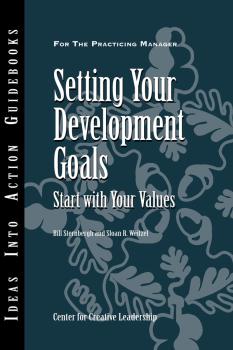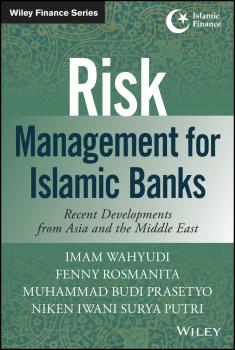Зарубежная деловая литература
Различные книги в жанре Зарубежная деловая литератураSetting Your Development Goals
Center for Creative Leadership (CCL)
This guidebook is about changing the way you think about setting goals. It is about identifying goals that are important and meaningful. Creating those kinds of goals means taking stock of your values—what you believe and how you act to carry out those beliefs—in five key areas of your life: career, self, family, community, and spirit. Once you’ve identified what’s really important you can create goals that will help you improve and carry out those values through your actions. The goals you create will be SMART: specific, measurable, attainable, realistic, and timed. Setting meaningful goals will reward you with real progress toward success in all areas of your life.
Using Your Executive Coach
Center for Creative Leadership (CCL)
If you are a manager or executive who is beginning a coaching engagement or who is considering a developmental plan that calls for an executive coach, you need more than a desire to improve your leadership capabilities. You also need to understand how to get the most from your work with a professional coach. This guide can help you to understand the unique nature of a coaching engagement and to assess your readiness to embark on this method of professional development. The book describes the three main elements of a coaching engagement—assessment, challenge, and support— and provides information on how you can collaborate with your coach in each of these aspects to get the maximum benefits from coaching. You will also learn how to recognize and overcome your resistance to the disruption and discomfort brought about by the behavioral changes that coaching addresses.
Linkage Inc's Best Practices in Leadership Development Handbook
Leadership development is a planned effort that enhances the learner's capacity to lead people. Building on the success of the first edition, Linkage conducted a study of over 300 top organizations and their needs in organizational change and leadership development that identifies approaches to leadership development that have proven to be successful. The work offers practical «how-to» instructions developing leaders and engaging in leadership development. It provides current in-depth models, assessments, tools, and other instruments that can be used for immediate application within a variety of organizations.
Risk Management for Islamic Banks
Gain insight into the unique risk management challenges within the Islamic banking system Risk Management for Islamic Banks: Recent Developments from Asia and the Middle East analyzes risk management strategies in Islamic banking, presented from the perspectives of different banking institutions. Using comprehensive global case studies, the book details the risks involving various banking institutions in Indonesia, Malaysia, UAE, Bahrain, Pakistan, and Saudi Arabia, pointing out the different management strategies that arise as a result of Islamic banking practices. Readers gain insight into risk management as a comprehensive system, and a process of interlinked continuous cycles that integrate into every business activity within Islamic banks. The unique processes inherent in Islamic banking bring about complex risks not experienced by traditional banks. From Shariah compliance, to equity participation contracts, to complicated sale contracts, Islamic banks face unique market risks. Risk Management for Islamic Banks covers the creation of an appropriate risk management environment, as well as a stage-based implementation strategy that includes risk identification, measurement, mitigation, monitoring, controlling, and reporting. The book begins with a discussion of the philosophy of risk management, then delves deeper into the issue with topics like: Risk management as an integrated system The history, framework, and process of risk management in Islamic banking Financing, operational, investment, and market risk Shariah compliance and associated risk The book also discusses the future potential and challenges of Islamic banking, and outlines the risk management pathway. As an examination of the wisdom, knowledge, and ideal practice of Islamic banking, Risk Management for Islamic Banks contains valuable insights for those active in the Islamic market.
Successful Networking in 7 simple steps
7 simple steps to help you get what you want from networkingNetworking: get it right, and it provides an opportunity for learning and expanding your business contacts. But there are so many ways to get it wrong. Maybe you’ve learnt this the hard way, or maybe you don’t know where to start. Whether you’re setting out into the world of business for the first time, planning a return visit or want to be the best in the job you’re in, this is the book for you.Follow these 7 simple steps to pick your way through the minefield that is networking. We’ll take you from creating new opportunities to maintaining valuable relationships, and show you how to survive any difficult moments along the way.
Presentation Skills in 7 simple steps
7 simple steps to transform your presentationsSpeaking in front of an audience can be tough. Believe it or not, working out what you want to say is often the easiest part. You may need help overcoming nerves, or practical advice on body language, using technology, or dealing with tricky questions.This book gives you practical advice on how to give well-structured and clear presentations that engage your listeners and make an impact. No more sweaty palms, just cool, calm and effective presentations.
Willing Slaves: How the Overwork Culture is Ruling Our Lives
A hard-hitting exposé of the overwork culture and modern management techniques that seduce millions of people to hand over the best part of their lives to their employer.Work has come to increasingly dominate British national life. ‘Job intensification’ affects every shopfloor, office, classroom and hospital, as a cult of efficiency has driven a missionary magnetism of tighter deadlines and more exacting targets in the most exploitative and manipulative work culture developed since the Industrial Revolution.What do we get in return for this hard work? Stagnant wages, job insecurity, stress, exhaustion; the British workforce has not been so powerless for over a century. ‘Willing Slaves’ exposes the paradox that, though we’re all being exploited, it’s work that has come to give our lives meaning: religion, political causes, family life have become secondary. This book reveals how this astonishing fraud has been perpetrated, how millions of workers know they face burnout but believe ‘there is no alternative’.Bunting tells us how to take our lives back – and what will happen if we don’t.
What Works: Success in Stressful Times
A lively, engaging and counterintuitive exploration of success stories from across the globe, and what Michelle Obama referred to as ‘the flimsy difference between success and failure’.In this lively and counterintuitive exploration of success stories from across the globe, award-winning journalist Hamish McRae takes the reader on a fascinating journey in pursuit of the flimsy difference between triumph and failure. Why do some initiatives take off while others flounder? How have some communities managed to achieve so much while others struggle? What distinguishes the good companies from the bad?This thoughtful, engaging look at some of the world’s greatest success stories provides an optimistic and eminently practical guide to what works and why. What lessons can we learn from the surprisingly well-ordered Mumbai community made famous by ‘Slumdog Millionaire’? Why have Canadian manners helped Whistler become the most popular ski resort in North America? How has Zurich developed the world’s most admired anti-drug policies? And how has Hong Kong used gambling profits to help its residents enjoy the greatest level of economic freedom on the planet?Drawing life lessons from the great ideas put to work on every continent – from America to Europe, from Africa to Asia and Australasia – McRae’s stories are as surprising as they are inspiring. We are better placed now than we have ever been to make good choices about the future of our species and our planet. But if we are to face the many challenges ahead, we have to try to learn from each other. ‘What Works’ will leave you entertained, informed and, ultimately, enlightened as to what each of us can do to make successes of our businesses, our communities and our lives.
Third World America: How Our Politicians Are Abandoning the Ordinary Citizen
Features updated material and a special foreword from Arianna for the UK audienceIt’s not an exaggeration to say that the hard-working, average citizen on an average income is an endangered species and that the American Dream of a secure, comfortable standard of living has become outdated. The USA is in danger of becoming a Third World nation.The evidence is all around: its industrial base is vanishing, taking with it the kind of jobs that have formed the backbone of America’s economy for more than a century; the education system is in shambles, making it harder for tomorrow’s workforce to acquire the information and training it needs to land good twenty-first-century jobs; its infrastructure – roads, bridges, water, and electrical systems – is crumbling; its economic system has been reduced to recurring episodes of Corporations Gone Wild; and its political system is broken, in thrall to a small financial elite using the power of the chequebook to control both parties. And America’s middle class, the driver of so much of the country’s economic success and political stability, is rapidly disappearing, forcing this democracy to confront the fear that it is slipping as a nation – that its children and grandchildren will enjoy fewer opportunities and face a lower standard of living. It’s the dark flipside of the American Dream – an American Nightmare of their own making.Arianna Huffington, editor in chief of the must-read Huffington Post, has her finger on the pulse of America and unflinchingly tracks the gradual demise of the nation as an industrial, political, and economic leader. In the vein of her fiery bestseller Pigs at the Trough, Third World America points fingers, names names, and details who’s killing the American Dream. Calling on the can-do attitude that is part of America’s DNA, Huffington shows precisely what needs to be done to stop the free fall and keep the country from turning into a Third World nation. Third World America is required reading for anyone who is disturbed by the United States’ steady descent from twentieth-century superpower to backwater banana republic.
Funny Money: In Search of Alternative Cash
Only our limited idea of money is keeping us poor. David Boyle introduces us to alternative cash and people who can conjure money – that is, spending power – out of nothing.Until recently, the growth of alternative cash had been the province of big business: phone cards, stamps, air miles and Tesco’s clubcard points all have purchasing power, yet are not cash as we know it. Now, locally created money systems like ‘time dollars’, ‘Womanshare’ and ‘Ithaca hours’ are being invented by communities for communities.With clarity and great humour, Boyle tells the story of this extraordinary revolution: he travels to the USA to visit the people behind local money systems; relates their vision of the future; and describes how to set up your own currency. This is no dry theoretical tome: Boyle writes about his subject in a way that is concrete, illuminating, often very funny and always highly readable.This paperback edition includes a new epilogue with an update on the latest alternative currency ideas: ‘You just have to cast doubt on the real existence of the money markets and they could just shrivel away. Anything could happen.’A revolution is underway now: this book tells the story of its leaders and the ideas that inspired them.









